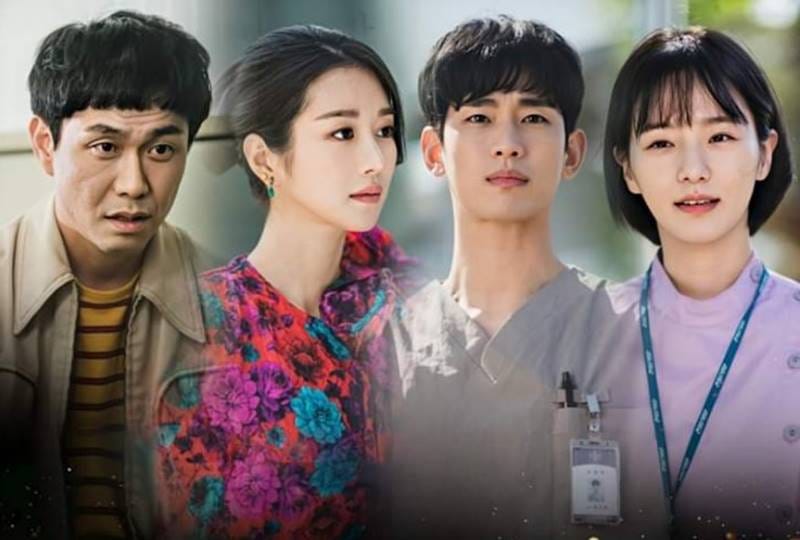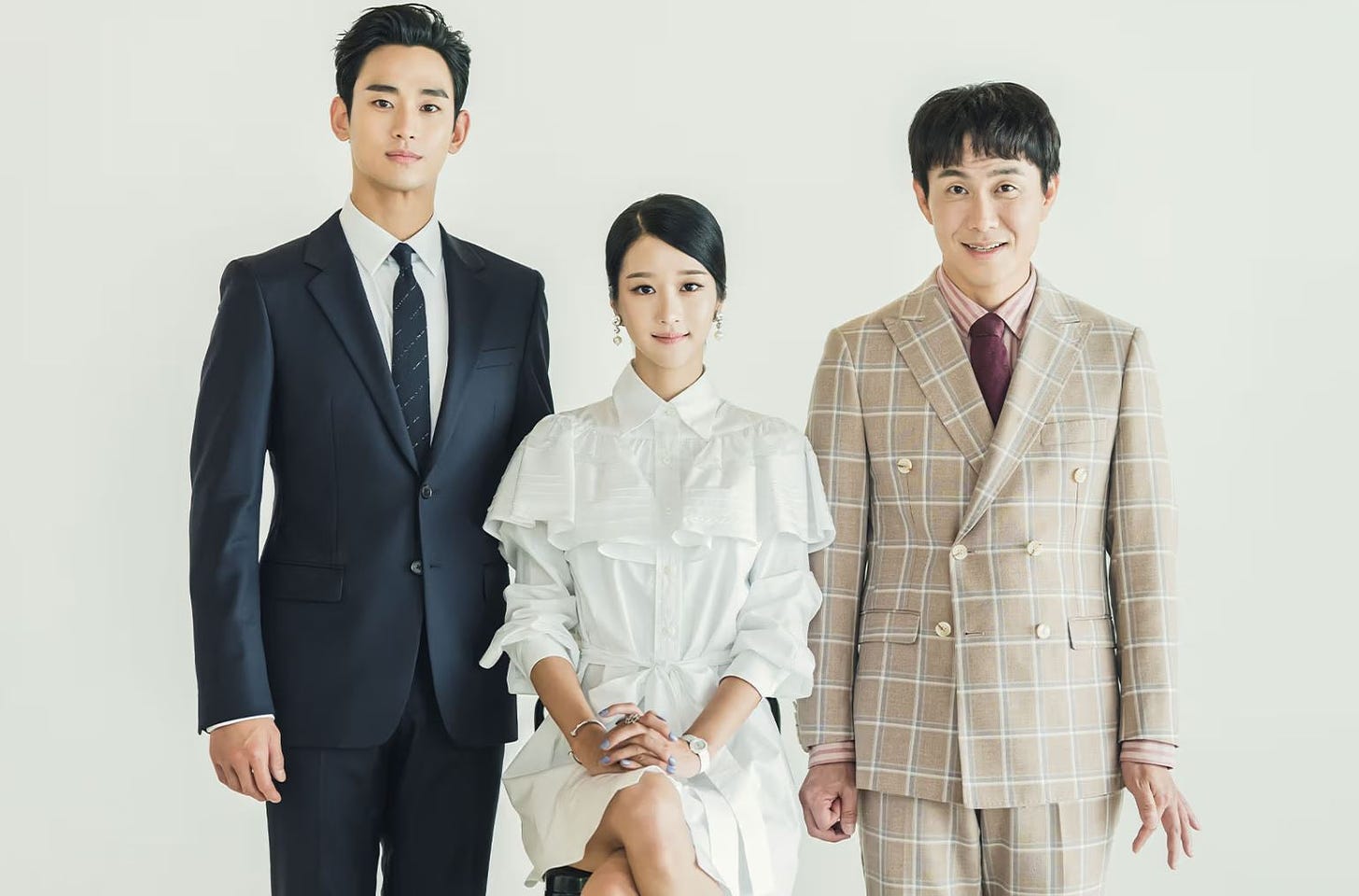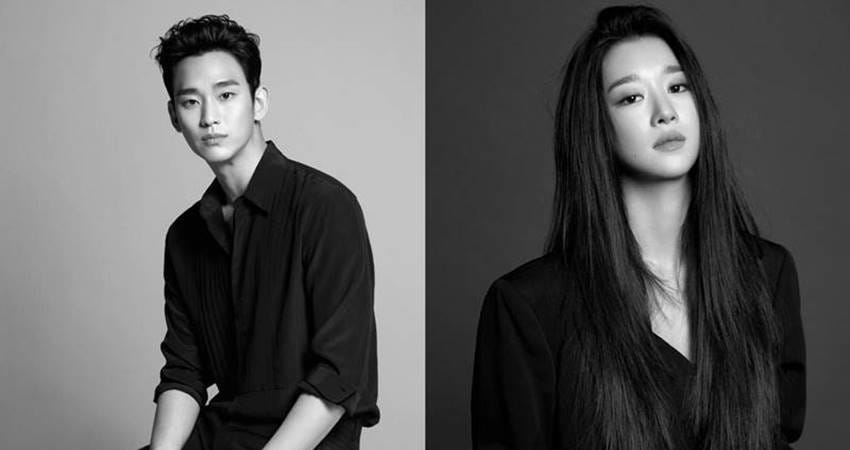"It's Okay to Not Be Okay": An Unconventional Love Story Focusing Beautifully on Mental Health
This K-drama depicts how the aftermath of abuse affects the psyche; it also reaffirms that seeking help is self love.
A beautifully-paced series, "It's Okay to Not Be Okay" (사이코지만 괜찮아) focuses on two brothers. Kang-tae (Kim Soo-hyun) is a handsome nurse's aide at a psychiatric clinic, who seems to have his life completely under control. Sang-tae (Oh Jung-Se) is his older, autistic brother, who hasn't been able to shake the trauma of having witnessed their mother being murdered.
Both brothers are broken. Kang-tae has spent all his life taking care of his older brother, whom he loves, but also resents. Sang-tae may have a disability, but he understands he is a burden to his brother, despite the latter's protests to the contrary.
Enter Moon-young (Seo Ye-ji), a successful children's author who specializes in writing somewhat macabre stories that don't have the traditional fairytale ending. Adored by Sang-tae, who is a fan of her work, and ignored by Kang-tae, who views her as a shallow nuisance, she decides that she must have Kang-tae.
Why? Because he's handsome. It's as simple as that. She is a woman accustomed to getting whatever she wants, whenever she wants. Adding him to her list of must-haves doesn't seem out of character.
"It's Okay to Not Be Okay" is an unconventional love story that also focuses beautifully on mental health. It depicts how the aftermath of abuse and abandonment affects the psyche, but reaffirms that no one is a lost cause — and that seeking help is self love.
It would've been easy to make these characters so over the top that no one would want to watch more than an episode or two. But the writers did an admirable job of showing all their nuances, warts and all.
The subplots focused on why the characters were placed in the facility. It showed how they lost a bit of their minds after being abused, abandoned or simply ignored. It depicted the aftermath of war, when soldiers are ordered to kill innocent civilians and can't find the strength to disobey immoral orders. The patients were treated with respect, and not like crazy folks who needed to be locked away.
And with Sang-tae, the writers depicted a childlike man who, nonetheless, was an adult who understood more than people wanted to give him credit for. He internalized the hurtful things people said about him, including hateful words that Kang-tae had spit out at him when he was an overburdened young child.
This series showed that while no one is immune to succumbing to mental health issues, most people aren't lost causes. If they seek help and find someone who truly cares about them, there is hope. Kang-tae's boss, Dr. Oh, knows that some people think he's an unorthodox quack. But the psychiatrist — puckishly played by Kim Chang-wan, who was Kim Soo hyun's best friend and confidante in "My Love From Another Star" — gets to the root of the patient's issues with a potent combination of tender care and pushing all the right buttons.
As for Seo Ye-ji and Kim Soo-hyun, they were the perfect choices for the roles. Their physical beauty offset the internal turmoil they projected in every episode. The best way I can describe why their characters worked is because of the complicated symbiotic relationship they shared.
Read more about the series in the Spoiler Alert below.
Rating: ☆☆☆½ (As always, I use a ☆☆☆☆ system.)
Airdates: Sixteen hour-long episodes aired on tvN from June 20 to August 9, 2020. (I watched this on Netflix.)
Spoiler Alert: Kang-tae's memories of his mother revolve around her not loving him as much as she does Sang-tae. In quiet moments when he thinks she will say something special just to him, she reveals that she wanted a second child so that someone would be around to take care of Sang-tae after she grew older and died. He remembers getting to take taekwondo lessons not because she wants him to be happy, but because she wants the little boy to protect his much older brother from bullies in school. There's a scene where the three are leaving a restaurant. She pulls out an umbrella and covers Sang-tae, leaving Kang-tae to walk in the rain alone.
But later, we learn that his memories weren't quite correct. Because he had been so hurt and angry, he had forgotten that on that rainy day, she turned around and saw he was getting drenched and immediately called him over to get under the umbrella. She hugged him and said she'd get him in cozy dry clothes when they got home. Do I believe Kang-tae had more responsibilities than children should have? Yes. But, as his friend's mother tells him, his mom had to raise two boys — one with special needs — and did the best she could at the time with limited resources.
Jang Young-nam, who had a cameo role in Kim Soo-Hyun's “Moon That Embraces the Sun," portrays the facility's head nurse. In the most over-the-top soap opera moment of the series, it's revealed that she is actually Moon-young's mother (played in flashbacks by Woo Jung-won)! Born Do Hui-jae, she was an eccentric and sociocpathic author, who viewed Moon-young as her greatest creation. Kang-tae's mother worked as the family's housekeeper. After witnessing Moon-young acting erratically, she suggested to Hui-jae that she seek psychiatric help for her daughter. Enraged that someone — especially a housekeeper — would insult her in that way, she stabbed her repeatedly. Sang-tae witnessed the murder. Traumatized and fearful of Hui-jae's threats to kill him if he said anything, he fixated on the butterfly broach on her coat. A former medical student, Hui-jae got plastic surgery and reinvented herself as a nurse, where she watched over her unsuspecting bedridden husband, who had no idea who she was. Her goal was to watch him deteriorate and die, because he had (accidentally?) tried to kill her after learning what she had done to their housekeeper.
WHAT I’VE BEEN UP TO:
• I had an exclusive interview with the 2nd generation K-pop group Sistar19 for Rolling Stone.
• For my latest Chicago Tribune article, Pentatonix’s Mitch Grassi and I chatted about life on the road, Stevie Wonder & their Grammy nominations.
• They Call Us Bruce had me on their podcast to talk about the best (and worst) of 2023’s K-Entertainment.
• NPR’s Weekend Edition Sunday had me on to discuss Lee Sun-kyun’s death.
• I’m currently doing research and prepping for an interview for a cover story, which I can’t discuss yet. It’s a lot of work, but also a lot of fun. I can’t wait to share it with you all in February!
© 2024 JAE-HA KIM | All Rights Reserved







so fun to read this review and re-remember this drama. i remember being a puddle when the memories of Kang Tae's mother was shown in a new way. KSH also has the most nuanced face as it melts into tears and crumbles to sorrow. interesting how this drama and a similarly titled "it's ok, that's love" both deal with impacts of childhood trauma and mental illness and both made a rather significant splash in Korea. hopeful!
I watched this drama when it came out and loved the cast and the characters they played. I also love how the writer wove children's stories into the episodes. This is what makes me love and appreciate Korean dramas (more than the series they show in my own country or western shows). It's the intricacy of the writing, the creativity of stories, and the plot twists.